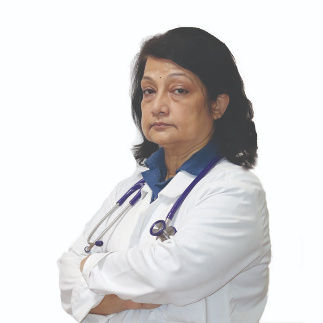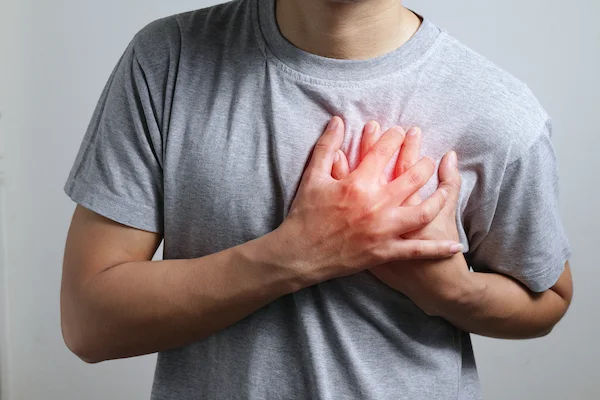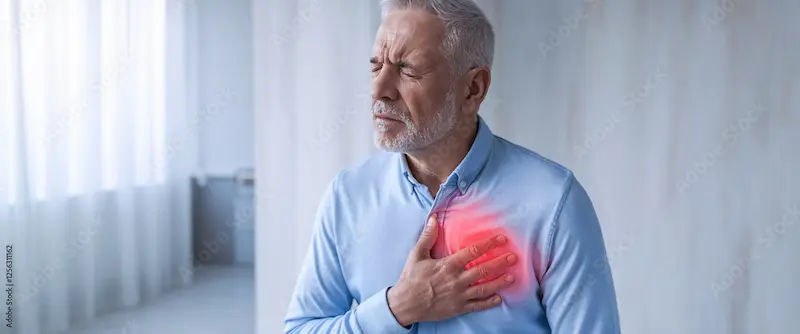The Silent Threat: Understanding the Rise of Sudden Cardiac Death in Young Indians
Explore the rising incidence of sudden cardiac death in young Indians, its causes, warning signs, and preventive strategies to protect heart health.


Introduction
The tragic news has become unsettlingly familiar: a seemingly healthy young individual in their 20s or 30s collapses suddenly, with the cause of death often cited as a "massive cardiac arrest." These stories shatter the myth that heart ailments are exclusive to the elderly, highlighting a disturbing public health crisis. The incidence of young sudden cardiac death (SCD) is witnessing a worrying uptick across India. This phenomenon, where death occurs within an hour of symptom onset in an otherwise healthy person, is often a bolt from the blue for families. But is it truly unpredictable? This article delves deep into the reasons behind this alarming trend, exploring the unique vulnerabilities of the Indian population, the hidden genetic and lifestyle factors at play, and, most importantly, the proactive steps that can be taken to identify risk and prevent tragedy. Understanding this sudden threat is the first step toward safeguarding a generation.
What Exactly is Sudden Cardiac Death (SCD)?
Sudden cardiac death (SCD) is not a heart attack, though the terms are often used interchangeably. It is an abrupt, unexpected loss of heart function, breathing, and consciousness, caused by a sudden disruption in the heart's electrical system. This disruption, typically a dangerously fast and chaotic rhythm called ventricular fibrillation, causes the heart to stop pumping blood effectively to the brain and vital organs. Without immediate emergency treatment, death can occur within minutes.
The "sudden" aspect is what makes it so devastating. Unlike a progressive illness, SCD often strikes without prior severe symptoms, frequently during physical activity or even during sleep. The victim may have had an underlying, undiagnosed heart condition that they were completely unaware of. This is why focusing on the causes of sudden cardiac arrest in their 30s is critical, as this age group is often in the prime of their lives and least likely to undergo routine cardiac screening.
SCD vs. Heart Attack: Knowing the Critical Difference
While both are serious cardiac events, the mechanism is different:
- Heart Attack (Myocardial Infarction): This is a "plumbing" problem. It occurs when a blocked coronary artery prevents oxygen-rich blood from reaching a section of the heart muscle, causing that muscle to die. Symptoms like chest pain are common. A heart attack can, however, trigger an electrical disturbance that leads to SCD.
- Sudden Cardiac Arrest (SCA): This is an "electrical" problem. The heart's electrical system malfunctions, causing an immediate halt to effective pumping. The person collapses instantly. SCA is the event that leads to sudden cardiac death if not treated.
Understanding this distinction is vital because the prevention strategies differ. Preventing a heart attack involves managing cholesterol and atherosclerosis, while preventing SCD often involves identifying and managing electrical or structural abnormalities of the heart.
Consult a Cardiologist for the best advice
Alarming Numbers: The Rising Incidence in India's Youth
Data from various Indian studies paints a grim picture. A study published in the Indian Heart Journal indicated that the mean age for sudden cardiac death in India is nearly 20 years younger than in the Western population. While SCD in the West typically affects those in their mid-60s, in India, a significant proportion of victims are between 35 and 45 years old. Some estimates suggest that India accounts for nearly 60% of the world's cardiac burden, with a disproportionately high rate of events in the young.
Why is the Indian Population Particularly Vulnerable?
This premature susceptibility, often termed the "Indian epidemic," is attributed to a combination of genetic, metabolic, and environmental factors:
- Genetic Predisposition: Indians have a higher genetic tendency for developing insulin resistance and coronary artery disease at a younger age.
- "Thrifty Gene" Hypothesis: This theory suggests that generations of nutritional scarcity have programmed Indian metabolisms to store fat efficiently. In today's era of caloric abundance, this leads to rapid accumulation of abdominal fat, a key risk factor for heart disease.
- Lower HDL (Good Cholesterol) and Higher Triglycerides: The Indian lipid profile is often characterised by these patterns, which are more atherogenic (plaque-forming) than high LDL alone.
- Rapid Lifestyle Westernisation: A swift shift to sedentary jobs, high-stress levels, processed diets, and reduced physical activity has created a perfect storm for cardiac ailments.
Unmasking the Hidden Causes: Why Young Hearts Fail Suddenly
The underlying causes of SCD in the young are typically grouped into structural heart problems and electrical disorders.
Structural Heart Problems (Cardiomyopathies)
These conditions involve an abnormality in the heart muscle itself.
Hypertrophic Cardiomyopathy (HCM): The Silent Thickening
HCM is the most common cause of SCD in young people worldwide, including athletes. It involves a thickening of the heart muscle, which can obstruct blood flow and create a substrate for lethal arrhythmias. Often, the first sign is sudden collapse. Symptoms of cardiomyopathy in young adults can be subtle, like unexplained shortness of breath during exertion or occasional palpitations.
Arrhythmogenic Right Ventricular Dysplasia (ARVD)
In ARVD, the muscle of the right ventricle is progressively replaced by fatty and fibrous tissue. This disrupts the heart's electrical signals, leading to arrhythmias, especially during exercise.
Electrical Faults of the Heart (Primary Electrical Disorders)
In these conditions, the heart's structure is normal, but its electrical system is faulty.
Long QT Syndrome and Brugada Syndrome
These are inherited heart conditions where the heart takes longer to "recharge" between beats (long QT) or has a specific pattern on an ECG that predisposes to dangerous rhythms (Brugada). They can be triggered by certain medications, fever, or even sleep.
The New Danger: Premature Coronary Artery Disease (CAD)
This is becoming a leading cause. Due to factors like premature atherosclerosis from diabetes, high blood pressure, smoking, and high stress, young Indians are developing significant blockages in their coronary arteries. A sudden plaque rupture can lead to a massive heart attack that triggers SCD. This is a key reason why heart screening for young adults in India, especially those with risk factors, is no longer a luxury but a necessity.
Are There Warning Signs? Recognising the Red Flags
While SCD is often silent, there can be warning signs that are unfortunately overlooked.
Symptoms You Should Never Ignore
Be alert to these symptoms—they may signal an increased risk of SCD:
- Unexplained Fainting (Syncope): Fainting during physical activity or emotional excitement is a major red flag.
- Chest Pain or Discomfort: Especially during exercise.
- Family History: A history of SCD or unexplained death in a close relative under 50 is one of the strongest risk indicators.
- Shortness of Breath or palpitations that seem disproportionate to the activity level.
- Extreme Fatigue: Unusual, persistent fatigue could be a sign of an underlying issue.
If you or a loved one experiences any of these symptoms, it is crucial to consult a cardiologist. If symptoms like unexplained fainting or chest pain occur, consulting a doctor online with Apollo24|7 can be a quick first step to determine if further in-person evaluation is needed.
The Importance of Family History
Knowing your family's cardiac history is a powerful preventive tool. If there is a history of young sudden death, known genetic conditions, or multiple relatives with early-onset heart disease, inform your doctor. This may warrant earlier and more intensive screening.
Prevention is Paramount: How to Shield the Young Heart
Prevention operates on two levels: population-wide lifestyle changes and targeted screening for high-risk individuals.
The Role of Proactive Cardiac Screening
A basic preventive cardiac check-up for a young adult with risk factors (family history, smoking, hypertension, diabetes, obesity) may include:
- ECG (Electrocardiogram): To detect electrical abnormalities like long QT syndrome.
- Echocardiogram (Echo): An ultrasound of the heart to check its structure and function, ruling out conditions like HCM.
- Stress Test: To see how the heart performs under exertion.
- Blood Tests: Apollo24|7 offers convenient home collection for tests like a comprehensive lipid profile, HbA1c for diabetes screening, and other markers to assess overall risk.
For those with a strong family history or symptoms, more advanced tests like a Cardiac MRI or genetic testing may be recommended.
Lifestyle Modifications: Your First Line of Defence
Here are some heart-healthy habits you can adopt to lower your risk:
- Diet: Shift to a whole-foods, plant-based diet rich in fiber, low in saturated fats, salt, and sugar.
- Exercise: Aim for at least 150 minutes of moderate-intensity exercise per week.
- Stress Management: Incorporate yoga, meditation, or mindfulness practices to combat chronic stress.
- Avoid Tobacco and Limit Alcohol: Smoking is a major independent risk factor for CAD.
Get Your Health Assessed
The Role of Genetic Testing and Counselling
For families with a history of SCD, genetic testing for heart conditions can be life-saving. Identifying a pathogenic gene variant allows for "cascade screening," where other asymptomatic family members can be tested. If they test positive, they can be placed under preventive care (e.g., beta-blockers, lifestyle advice, implantable defibrillators) long before a tragic event occurs. Genetic counselling helps families understand the results and their implications.
Conclusion
The rise in young sudden cardiac deaths in India is a clarion call for a paradigm shift in our approach to heart health. Moving away from a reactive model to a proactive, preventive one is non-negotiable. It demands individual awareness—listening to our bodies, knowing our family history, and embracing healthier lifestyles. It also necessitates a systemic emphasis on accessible heart screening for young adults. While the statistics are alarming, they are not a foregone conclusion. Through education, timely screening, and lifestyle empowerment, we can demystify this silent threat. The young heart is not invincible, but it can be protected. Let this knowledge be the catalyst for action. If you have any risk factors, don't wait for symptoms to appear. Book a consultation with a cardiologist on Apollo24|7 to discuss a personalised screening plan.
Consult a Cardiologist for the best advice
Consult a Cardiologist for the best advice

Dr. Dayanashre N
General Physician
3 Years • MBBS
Bengaluru
PRESTIGE SHANTHINIKETAN - SOCIETY CLINIC, Bengaluru

Dr. Bhethala Sharan Prakash
General Physician/ Internal Medicine Specialist
5 Years • MBBS MD
Bengaluru
PRESTIGE SHANTHINIKETAN - SOCIETY CLINIC, Bengaluru

Dr. Anand Ravi
General Physician
2 Years • MBBS
Bengaluru
PRESTIGE SHANTHINIKETAN - SOCIETY CLINIC, Bengaluru

Dr. Tripti Deb
Cardiologist
40 Years • MBBS, MD, DM, FACC, FESC
Hyderabad
Apollo Hospitals Jubilee Hills, Hyderabad

Dr. Ramalinga Reddy
General Physician
5 Years • MBBS MD General medicine
Bengaluru
PRESTIGE SHANTHINIKETAN - SOCIETY CLINIC, Bengaluru
Consult a Cardiologist for the best advice

Dr. Dayanashre N
General Physician
3 Years • MBBS
Bengaluru
PRESTIGE SHANTHINIKETAN - SOCIETY CLINIC, Bengaluru

Dr. Bhethala Sharan Prakash
General Physician/ Internal Medicine Specialist
5 Years • MBBS MD
Bengaluru
PRESTIGE SHANTHINIKETAN - SOCIETY CLINIC, Bengaluru

Dr. Anand Ravi
General Physician
2 Years • MBBS
Bengaluru
PRESTIGE SHANTHINIKETAN - SOCIETY CLINIC, Bengaluru

Dr. Tripti Deb
Cardiologist
40 Years • MBBS, MD, DM, FACC, FESC
Hyderabad
Apollo Hospitals Jubilee Hills, Hyderabad

Dr. Ramalinga Reddy
General Physician
5 Years • MBBS MD General medicine
Bengaluru
PRESTIGE SHANTHINIKETAN - SOCIETY CLINIC, Bengaluru
More articles from Cardiovascular Emergencies
Frequently Asked Questions
Can a perfectly fit young athlete suffer from sudden cardiac death?
Yes, unfortunately. Intense exercise can act as a trigger for underlying conditions like hypertrophic cardiomyopathy (HCM) or inherited arrhythmias. This is why pre-participation cardiac screening is mandatory for competitive athletes in many countries.
What is the survival rate after a sudden cardiac arrest?
The survival rate is very low (often less than 10%) without immediate intervention. Survival depends on immediate CPR and the use of an automated external defibrillator (AED) within the first few minutes. This highlights the importance of widespread CPR training.
Are there any specific symptoms of a silent heart attack in young adults?
Silent heart attacks may present with atypical symptoms like unexplained indigestion, extreme fatigue, nausea, or discomfort in the jaw, neck, or back. These are often mistaken for less serious issues, leading to a missed diagnosis.
How often should a young adult with no symptoms get a heart check-up?
For a completely asymptomatic individual with no family history or risk factors, a baseline check-up in their late 20s or early 30s can be considered. However, if any risk factors are present (family history, smoking, high BP, diabetes), screening should start earlier and be more frequent, as advised by a doctor.
Has COVID-19 increased the risk of sudden cardiac death in young people?
COVID-19, particularly severe infection, can cause inflammation of the heart muscle (myocarditis) and increase the risk of blood clots, potentially elevating the short-term risk of cardiac events. While the long-term effects are still being studied, it's advisable for individuals recovering from COVID-19 to return to strenuous exercise gradually and consult a doctor if they experience cardiac symptoms.




